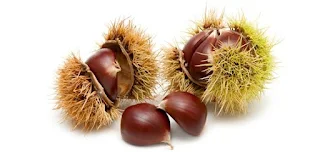Pregnancy is a period that requires much more care and attention than other times. During pregnancy, expectant mothers should pay particular attention to what they eat and drink. In normal times, many nutrients that are beneficial to health can have an adverse effect in pregnancy and may have negative effects on the baby in the mother's womb.
Expectant mothers who crave many foods while pregnant may sometimes crave chestnuts. Especially expectant mothers who spend their pregnancy in the winter months may be more impatient and greedy for chestnuts. Or chestnuts cooked in the environment may seem delicious to them. In such cases, expectant mothers can often look at chestnuts with suspicion, as they do with other foods. Many issues such as the benefits and harms of eating chestnuts while pregnant and whether it will harm the baby may confuse expectant mothers during this period.
What are the Benefits of Eating Chestnuts During Pregnancy?
Chestnut is a complete powerhouse. Therefore, it is an indispensable food source for expectant mothers, especially during pregnancy.
Pregnancy helps relieve pain in the pelvic and marital muscles. It gives strength and strength to the mother, reduces the feeling of fatigue.
Minerals found in chestnut, which is rich in unsaturated fatty acids and vitamins; It can prevent diseases by giving the body resistance against hypertension, coronary heart disease, atherosclerosis, osteoporosis and other diseases.
Since chestnut contains riboflavin, it is very useful against mouth sores, tongue sores and mouth ulcers caused by vitamin deficiency during pregnancy.
Due to the high carbohydrate content of chestnuts, it can provide more energy for the body and can be beneficial for the large and small intestines, spleen and stomach. This can be very beneficial for intestinal problems such as constipation during pregnancy.
Chestnut, thanks to its vitamin C content, protects teeth, bones and blood vessels; It is very useful for osteoporosis, low back and leg ailments, knee pain and weak bones and muscles. This nutrient, which is very useful in back and leg pain during pregnancy, slows down aging.
Chestnut is not limited to its nutritional aspect and its benefits for expectant mothers. Chestnut also supports fetal development by improving the immune system of the baby in the mother's womb.
It is a very useful food to eliminate the swelling problem that occurs during pregnancy, especially in the legs and arms. In addition, raw chestnut has a healing effect on leg numbness problems that occur during pregnancy.
The amino acids needed by the body, especially during pregnancy, are quite high in chestnuts, and with this feature, it helps to increase the mother's immune system.
Chronic diarrhea problem is also a problem that expectant mothers frequently encounter. In such cases, eating chestnuts relaxes the stomach and stops diarrhea.
Chestnut helps relieve nausea, which is a pregnancy symptom that expectant mothers often experience.
Another problem encountered during pregnancy is edema formation. The food that is good for edema prolem in pregnancy is of course chestnut. Chestnut, which is rich in potassium, preserves the moisture in the body and eliminates the sodium-potassium imbalance of the body.
How Should Chestnuts be Consumed?
Chestnuts can be eaten fresh and raw, as well as boiled and made into kebabs. Eating it raw causes indigestion and is not beneficial for digestion. It is much healthier to consume by cooking. In addition, the bark and leaves of the chestnut tree are also used. If the shells of the chestnut are boiled and the water is drunk, it calms the nerves and lowers the fever.
Chestnuts are scratched with a knife and can be fried in a pan and eaten as a snack. It can also be made by boiling in water or baking. Candied chestnuts can also decorate your tables as a delicious dessert. Chestnut honey is also a healing food that is good for many diseases.
( You can find our article on how to cook chestnuts at home here.)
What are the Harms of Eating Chestnuts During Pregnancy?
Chestnut has no known harm. It is a medicinal and highly nutritious food that can be eaten with peace of mind at all times, including the pregnancy process.
Those with atherosclerosis, diabetes and high blood pressure should either eat under the supervision of a doctor or not.
In addition, chestnut, which can be consumed by celiac patients with gluten sensitivity without hesitation, does not contain gluten, fat and cholesterol.



0 komentar:
Post a Comment